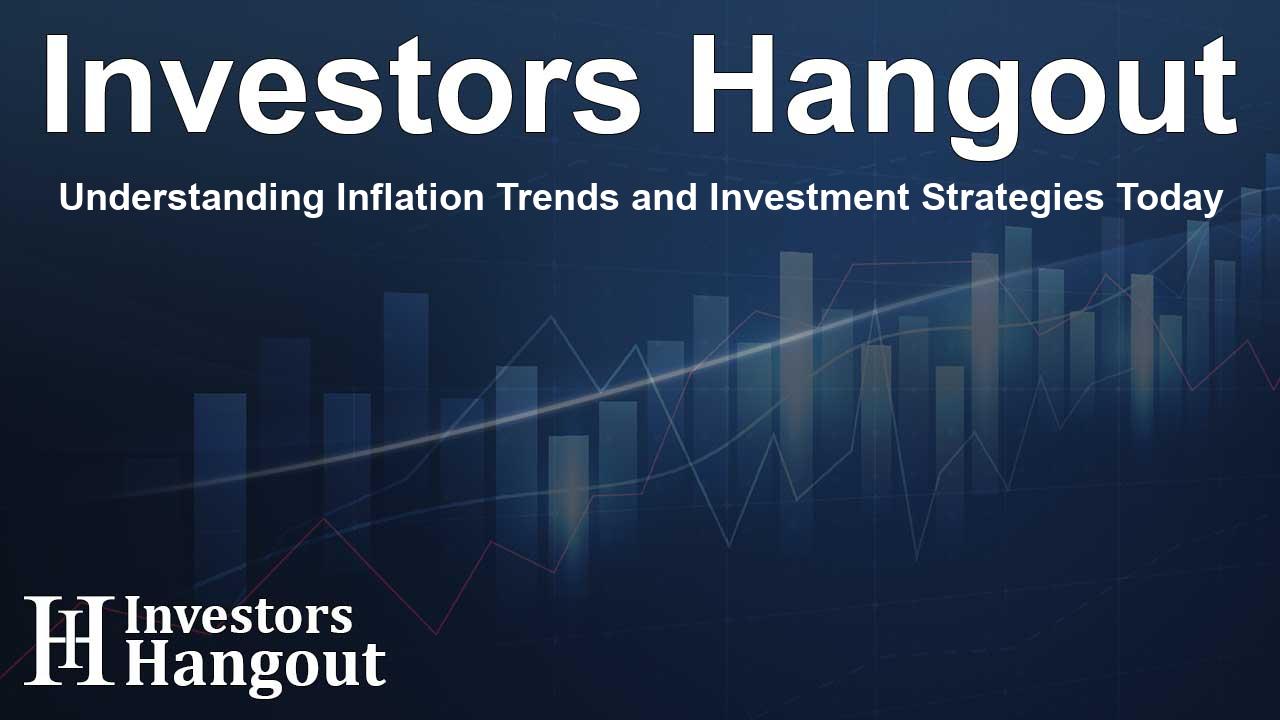Understanding Inflation Trends and Investment Strategies Today

Economic Trends and Their Impact on Investments
This week, we focus on the intricacies of economic mismanagement and its implications on investment strategies. It's imperative to recognize the influence of government policies on our financial landscape. Analyzing current inflation trends serves as a crucial reminder that prudent decision-making is essential for investors.
Rising Core CPI Following Fed Rate Cuts
The latest reports indicate that the Core Consumer Price Index (CPI) has risen, reflecting growing inflation concerns. This uptick follows the Federal Reserve's decision to lower interest rates in an attempt to stimulate economic growth. However, this decision appears to have backfired, as inflation rates are on the rise despite these cuts. The Core CPI, which excludes volatile food and energy prices, has risen significantly, illustrating that inflation is far from being controlled.
Importance of Monitoring Inflation Rates
Inflation poses a significant risk to economic stability. A rising Core CPI suggests that consumers may soon face higher costs, impacting their purchasing power. As inflation pressures mount, investors must stay informed about economic indicators and adjust their strategies accordingly.
Interest Rates and Treasury Yields: A Surprising Disconnect
Following the Fed's recent interest rate cut, one might expect lower borrowing costs across the board. Surprisingly, Treasury yields have risen instead. This phenomenon raises critical questions about the market's expectations for future inflation. As longer-term yields increase, investors may need to reassess their portfolios in light of these shifting dynamics.
The Role of Government Policy in Inflation
Government spending plays a pivotal role in inflationary trends. Excessive stimulus measures can skew economic reports and create misleading signals regarding economic productivity. Investors must navigate these waters carefully, optimizing their portfolios to hedge against looming inflation.
China's Stimulus Efforts and Market Reactions
On the international front, China's recent stimulus measures have had a pronounced impact on its stock market. When the government injects liquidity into the economy, markets often see an initial surge. However, the withdrawal of these supports can lead to significant market corrections. Investors should take heed; relying on government-induced market movements can be treacherous.
Lessons for American Investors
The fluctuations in the Hang Seng Index serve as a cautionary tale for American markets. Just as China's stocks react to fiscal interventions, U.S. markets may also face volatility based on Congressional spending decisions. Striking a balance between investment and cash reserves can provide a hedge against unforeseeable market shifts.
Regulatory Oversight: A Double-Edged Sword
Recent developments surrounding TD Bank's admission of participating in money laundering highlight the need for stricter regulatory oversight in financial institutions. Liz Warren's criticism, juxtaposed with systemic failures in her regulatory role, emphasizes the complexities inherent in financial governance.
Lessons from Regulatory Failures
Understanding the intricate relationship between government oversight and market behavior is paramount for investors. As regulatory frameworks evolve, staying informed about compliance and governance issues can guide investment decisions.
Investment Strategies for Young Savers
For those new to investing, particularly young individuals looking to grow their savings, understanding the market landscape is essential. With traditional saving methods offering minimal returns, exploring alternative investment strategies becomes crucial.
Practical Tips for Aspiring Investors
To effectively navigate this financial environment, young investors should prioritize saving and seek diverse investment opportunities. Options such as Bitcoin and commodities like gold can provide long-term growth potential against inflation. Additionally, low-cost index funds offer an accessible avenue for broad market exposure.
Frequently Asked Questions
What is Core CPI and why is it significant?
Core CPI measures the change in the price of goods and services, excluding food and energy, offering insights into inflation trends and economic health.
How should young investors approach the market?
Young investors should save consistently, diversify their portfolios with various assets, and consider long-term investment options like index funds and commodities.
What impact does government spending have on inflation?
Excessive government spending can distort economic signals and drive inflationary pressures, affecting consumers and investors alike.
What can be learned from China’s market behavior?
China’s stock market volatility underscores the risks associated with government stimulus and highlights the importance of economic adaptability for investors.
Why is it important to stay updated on economic indicators?
Understanding economic indicators allows investors to make informed decisions, adjust strategies proactively, and mitigate risks associated with market fluctuations.
About The Author
Contact Dominic Sanders privately here. Or send an email with ATTN: Dominic Sanders as the subject to contact@investorshangout.com.
About Investors Hangout
Investors Hangout is a leading online stock forum for financial discussion and learning, offering a wide range of free tools and resources. It draws in traders of all levels, who exchange market knowledge, investigate trading tactics, and keep an eye on industry developments in real time. Featuring financial articles, stock message boards, quotes, charts, company profiles, and live news updates. Through cooperative learning and a wealth of informational resources, it helps users from novices creating their first portfolios to experts honing their techniques. Join Investors Hangout today: https://investorshangout.com/
The content of this article is based on factual, publicly available information and does not represent legal, financial, or investment advice. Investors Hangout does not offer financial advice, and the author is not a licensed financial advisor. Consult a qualified advisor before making any financial or investment decisions based on this article. This article should not be considered advice to purchase, sell, or hold any securities or other investments. If any of the material provided here is inaccurate, please contact us for corrections.
